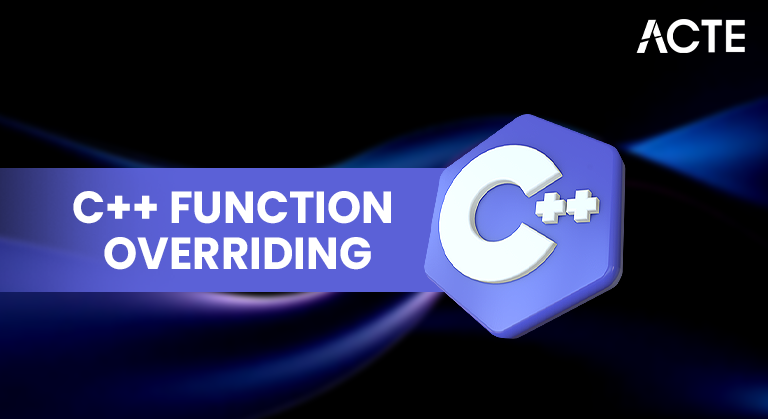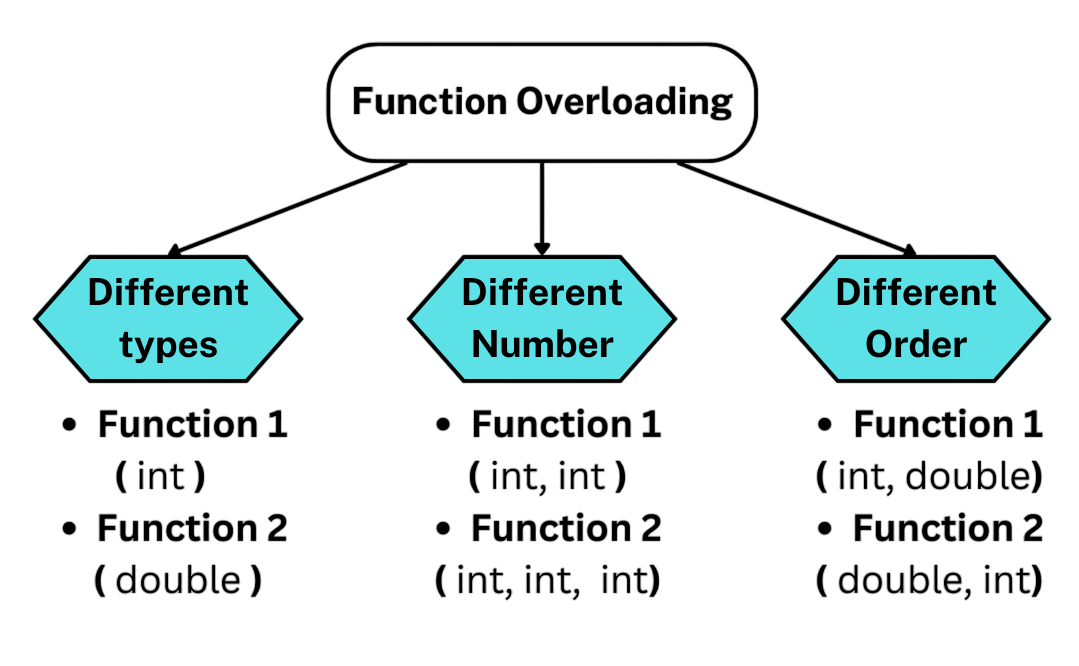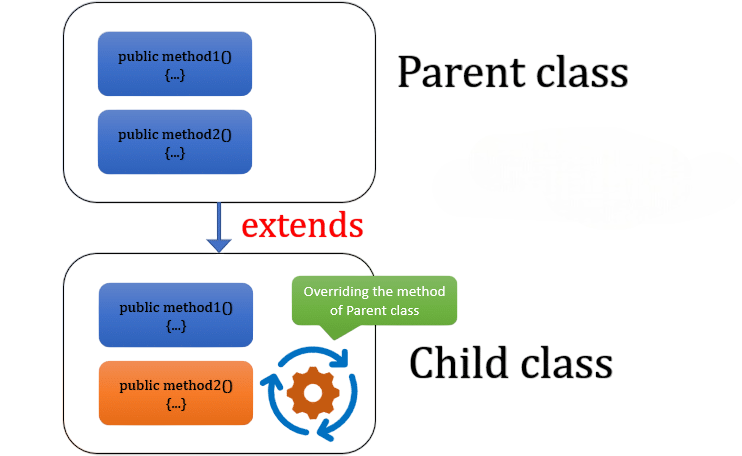
- Introduction to Function Overriding
- Difference Between Overloading and Overriding
- Basic Syntax of Function Overriding
- Rules for Function Overriding in C++
- Using Virtual Functions in C++
- Role of Inheritance in Overriding
- Base Class vs Derived Class Behavior
- Overriding with Pointers and References
- Use of the override and final Keywords
- Runtime Polymorphism via Overriding
- Examples and Use Cases in Real Applications
- Best Practices in Function Overriding
- Conclusion
Introduction to Function Overriding
Function overriding in C++ is an essential concept in object-oriented programming (OOP), allowing derived classes to provide specific implementations of functions already defined in their base classes. This concept supports runtime polymorphism, where function calls are resolved during program execution based on the object’s actual type, not the reference or pointer type. To complement such object-oriented principles with practical development expertise, exploring Web Developer Training equips learners with the skills to build dynamic websites and full-stack applications covering essential technologies like HTML, CSS, JavaScript, and backend frameworks for real-world deployment. Overriding ensures that derived classes can adapt inherited behavior to fit their specialized needs, making applications more modular and maintainable. It’s a core principle used across GUIs, frameworks, game engines, and more. To enable function overriding, the base class function must be declared using the virtual keyword.
To Earn Your Web Developer Certification, Gain Insights From Leading Web Developer Experts And Advance Your Career With ACTE’s Web Developer Courses Today!
Difference Between Overloading and Overriding
Function overloading and overriding are often confused, but they serve very different purposes: To complement such object-oriented distinctions with practical development tools, exploring Python IDEs and Code Editors introduces environments that support intelligent code suggestions, debugging, and syntax highlighting making it easier to implement, test, and differentiate between overloaded and overridden methods in real-world Python projects.
| Feature | Function Overloading | Function Overriding |
|---|---|---|
| Definition | Multiple functions with the same name but different parameters | Redefining base class function in derived class |
| Scope | Within the same class | Across base and derived classes |
| Signature | Must differ | Must match exactly |
| Resolution | Compile-time | Runtime |
| Virtual Keyword Needed | No | Yes (in base class) |
Overloading is useful for providing multiple behaviors under one function name based on parameter types. Overriding, on the other hand, allows altering inherited behaviors dynamically.
Basic Syntax of Function Overriding
Here’s a fundamental example to understand how overriding works: To complement such object-oriented principles with modern language design, exploring Go Programming Language introduces a statically typed, compiled language built for simplicity, concurrency, and performance offering composition over inheritance and idiomatic patterns that streamline scalable software development.
- class Animal {
- public:
- virtual void speak() {
- std::cout << “Animal speaks” << std::endl;
- }
- };
- class Dog : public Animal {
- public:
- void speak() override {
- std::cout << “Dog barks” << std::endl;
- }
- };
In this example, calling speak() on an Animal* pointing to a Dog object results in the Dog implementation being invoked.
Would You Like to Know More About Web Developer? Sign Up For Our Web Developer Courses Now!
Rules for Function Overriding in C++
To use function overriding properly, the following rules must be followed: To complement such object-oriented principles with precise variable visibility and namespace control, exploring Python Scopes and Their Built-in Functions reveals how global, local, enclosing, and built-in scopes interact alongside functions like globals(), locals(), dir(), and vars() that help manage context and behavior across overridden methods and nested structures.

- The base class function should be marked with virtual.
- The derived class function must have the same name, return type, and parameters.
- The access specifier of the derived function can differ from the base.
- Overriding only works in inheritance hierarchies.
- Constructors cannot be overridden.
- Static methods are not overridden but hidden.
- Always use the override keyword for safety.
Using Virtual Functions in C++
Virtual functions support dynamic dispatch. Without them, C++ would default to static binding, executing the base class method regardless of object type. To complement such runtime flexibility with practical development expertise, exploring Web Developer Training equips learners with the tools to build responsive websites and full-stack applications covering essential technologies like HTML, CSS, JavaScript, and backend frameworks for real-world deployment.
- Animal* animal = new Dog();
- animal->speak(); // Outputs: Dog barks
Without virtual, the output would be “Animal speaks”. Hence, virtual functions are necessary for polymorphism.
Are You Interested in Learning More About Web Developer? Sign Up For Our Web Developer Courses Today!
Role of Inheritance in Overriding
Function overriding relies on inheritance. When a derived class needs a behavior different from the base class, it overrides the base function. To complement such object-oriented flexibility with clean output presentation, exploring Python String Formatting introduces techniques like f-strings, `.format()`, and `%`-style formatting empowering developers to produce readable, dynamic text output that aligns with overridden behaviors and runtime data.
- class Shape {
- public:
- virtual void draw() {
- std::cout << “Drawing shape” << std::endl;
- }
- };
- class Circle : public Shape {
- public:
- void draw() override {
- std::cout << “Drawing circle” << std::endl;
- }
- };
In this setup, all shapes can be drawn using a single API, yet behave differently at runtime.
Base Class vs Derived Class Behavior
Let’s understand how behavior changes with and without virtual:

- class Base {
- public:
- void display() {
- std::cout << “Base display” << std::endl;
- }
- };
- class Derived : public Base {
- public:
- void display() {
- std::cout << “Derived display” << std::endl;
- }
- };
- Base* obj = new Derived();
- obj->display(); // Calls Base::display, not Derived::display
Since the display is not virtual, it results in static binding. Use virtual to allow overriding.
Overriding with Pointers and References
Dynamic polymorphism in C++ manifests most effectively through pointers and references. This approach is used heavily in real-time systems and framework design. To complement such runtime flexibility with persistent data handling, exploring Python Serialization introduces techniques like pickling, JSON encoding, and object persistence enabling developers to store, transmit, and reconstruct complex data structures across sessions and platforms with minimal overhead.
- void processShape(Shape& s) {
- s.draw();
- }
- Circle c;
- processShape(c); // Calls Circle::draw
This avoids hardcoding logic and allows open-ended extensibility.
Use of override and final Keywords
C++11 introduced override and final for better safety:
- class Parent {
- public:
- virtual void print() const final;
- };
- class Child : public Parent {
- // Error: Cannot override a final function
- void print() const override;
- };
Runtime Polymorphism via Overriding
Dynamic polymorphism in C++ manifests most effectively through pointers and references. This approach is used heavily in real-time systems and framework design. To complement such runtime flexibility with persistent data handling, exploring Python Serialization introduces techniques like pickling, JSON encoding, and object persistence enabling developers to store, transmit, and reconstruct complex data structures across sessions and platforms with minimal overhead.
Applications include:
- GUI components
- Game engine rendering
- Strategy and command patterns
- Logging systems
- File format handlers
Examples and Use Cases in Real Applications
Event-Driven GUI Systems:
- class EventListener {
- public:
- virtual void onClick() {
- std::cout << “Base click” << std::endl;
- }
- };
- class Button : public EventListener {
- public:
- void onClick() override {
- std::cout << “Button clicked” << std::endl;
- }
- };
Extensible Logging Framework:
- class Logger {
- public:
- virtual void log(const std::string& msg) {
- std::cout << “Log: ” << msg << std::endl;
- }
- };
- class FileLogger : public Logger {
- public:
- void log(const std::string& msg) override {
- std::ofstream out(“log.txt”);
- out << msg << std::endl;
- }
- };
Filesystem Abstraction:
- class FileSystem {
- public:
- virtual void readFile() = 0; // Pure virtual function
- };
- class NTFS : public FileSystem {
- public:
- void readFile() override {
- std::cout << “Reading NTFS file” << std::endl;
- }
- };
Render Engines in Games:
- class Renderer {
- public:
- virtual void renderFrame() = 0;
- };
- class OpenGLRenderer : public Renderer {
- public:
- void renderFrame() override {
- std::cout << “Rendering with OpenGL” << std::endl;
- }
- };
Best Practices for Overriding in C++
- Use override specifier in all derived methods.
- Declare destructors as virtual in base classes.
- Avoid overriding non-virtual functions.
- Use final for sensitive operations.
- Document behaviors thoroughly.
Conclusion
Function overriding in C++ is a gateway to polymorphism and extensible software design. It empowers developers to write flexible, reusable, and maintainable code by allowing derived classes to customize base class behavior. By leveraging virtual, override, and final, and adhering to inheritance rules and best practices, programmers can take full advantage of object-oriented capabilities in C++. To complement such language-level precision with practical development skills, exploring Web Developer Training equips learners with hands-on experience in HTML, CSS, JavaScript, and modern frameworks preparing them to build responsive websites and full-stack applications aligned with industry standards. Whether you’re building GUIs, compilers, games, or backend services, mastering function overriding is essential to designing dynamic, scalable systems.





